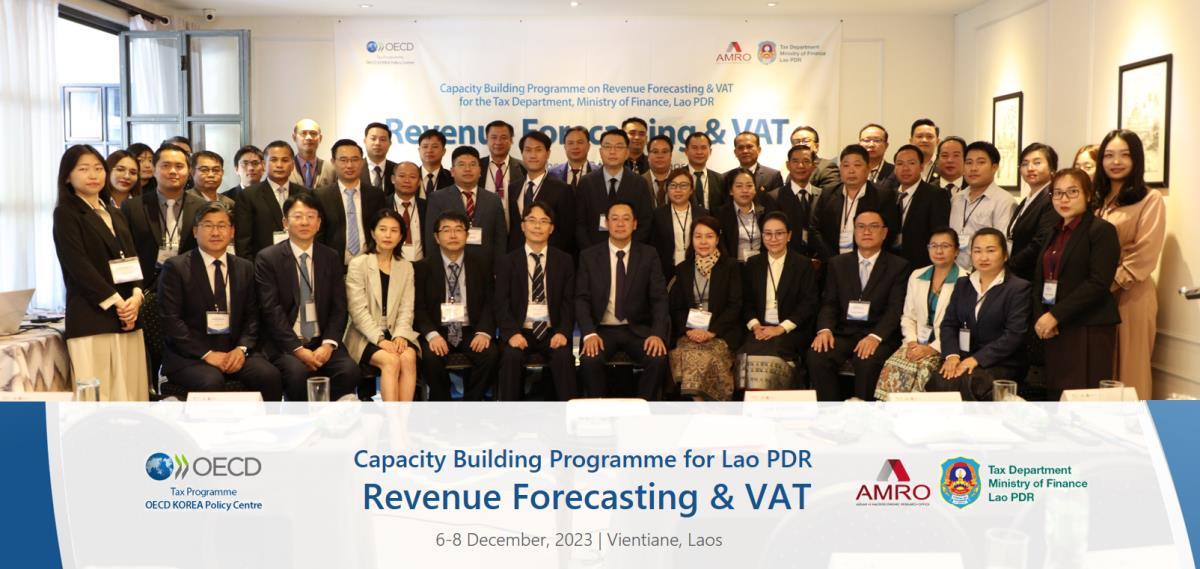Welcoming Message History and Mission Programmes Location Organization Notice
Events - Seminar - Workshop - Forum - Expert Meeting - Capacity-Building
Research Publications Competition Policy Trends Family Database in the Asia-Pacfic Region Links
Capacity-Building 2023-12-06~2023-12-08
< Capacity Building Programme on Revenue Forecasting & VAT for the Tax Department, Ministry of Finance, Lao PDR (Session 1) >
The Korea Tax Centre(KTC) successfully fisnished the session 1 of the Capacity Building Programme on Revenue Forecasting & VAT for the Tax Department, Ministry of Finance, Lao PDR. The programme was co-hosted in cooperartion with AMRO(ASEAN+3 Macroeconomic Research Office) and OECD in Vientiane, Lao PDR from December 6th to 8th, 2023. The programme aimed to enhance the basic understanding and application of revenue forecasting and Value Added Tax(VAT) among tax officials from the Tax Department.

The three-day seminar focused on the agenda of ‘Revenue Forecasting and VAT.’ Commencing with the introductory analysis of the fiscal environment, the seminar delved into comprehensive topics, including the concepts, methodologies, and the significance of revenue forecasting on direct and indirect taxes. Moreover, discussions included an analysis of the VAT increase in Korea and considerations for increasing VAT rates in Lao PDR. Experts also shared the fiscal experiences of Korea, including the overall change in Korea’s Tax system, tax revenue error, fiscal management, and upcoming changes in the economic environment and revenue forecasting.
The programme was attended by 35 tax officials from the Tax Department, Ministry of Finance, Lao PDR. Korean experts, Dr. Deockhyun Ryu(Chung Ang University), Dr. Jae Hyung Jang(Yulchon LLC), Mrs. Hyejeong Sim(National Assembly Budget Office of Korea), Dr. Kyung Yeop Baek(National Assembly Budget Office of Korea), and Mr. Sumio Ishikawa from AMRO, delivered comprehensive lectures. All the participants enthusiastically posed questions to the speakers and actively engaged in the discussions.
Session 2 of the Capacity Building Programme will be held in the first half of 2024.